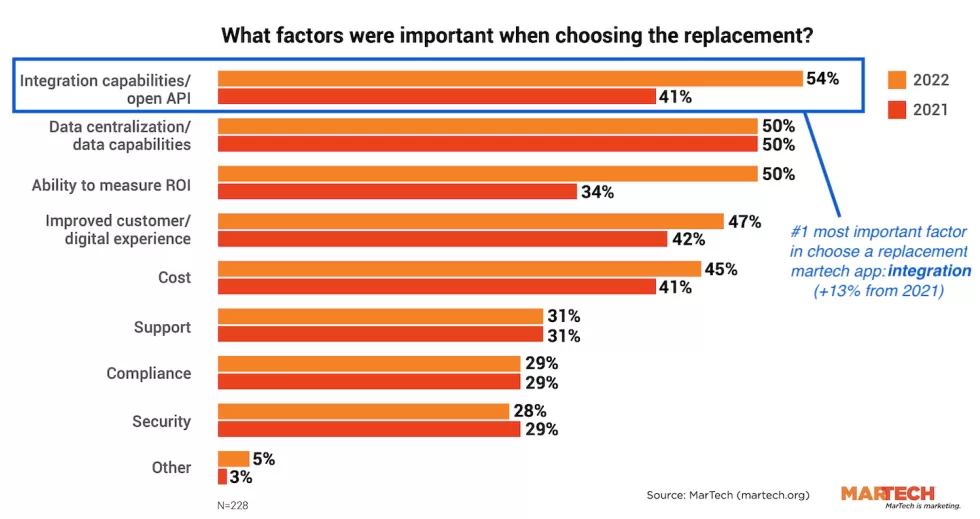AI-powered systems are empowering email marketing, they are wholly driven by customer data, based on what stage someone is at in their customer journey. What’s significantly different to retailers is that machine learning – just one aspect of AI means that not only is all the work done for you, but that it delivers massively more ROI as a consequence. The technology uses past purchases, interests and browsing behaviour to identify the highest return possible for each consumer, and selects content to nurture that potential.
For ecommerce this means that AI can now determine the highest potential ROI from the entire SKU list for product content and images that are going to be most effective in any email campaign, keeping the goal perpetually focused on the key elements of customer lifetime value, average order value, customer retention and loyalty.
Hyper-Personalisation Empowering Email Marketing
AI technology analyses consumer behaviour on each person as an individual at a wholly personal level. It studies the purchasing habits of that individual, but it also sees their actions to purchase, – such as repetition of visits, relevancy of product offered, and length of time on a product before making a purchase. Their interests and actions generate data-driven insights.
You don’t need to know them, providing your platform has an AI marketing solution installed, as it is handling the data for you, with zero effort for you, or your staff, as a consequence. An AI predictive solution which creates customised emails, tailored to each individual, not a lump of collective data segments that, until now, had been the only alternative.
Subscribers are known to not even bother opening your emails, zero CTR if your email content doesn’t satisfy them, by which we don’t just mean showing them products they like, but showing it to them exactly when they like. It doesn’t matter if you employ a few hundred people in email marketing, they aren’t going to be able to satisfy the individual needs of each consumer if your company thinks of its customers as a collective, rather than distinct and unique individuals.
Imagine being in a restaurant and the waiter flicks a dollop of food on your plate! Now picture that analogy in terms of what you serving your customers, specifically the content of your emails. You don’t want your customers to perceive your actions merely as an imminent lambasting on TripAdvisor or Trustpilot, and yet a blasé attitude is perhaps what is most commonly perceived by consumers of their suppliers without AI.
Spurious content and segmented audience/product selection, running in the face of individualism and predictive personalisation, do exactly this. Of course, consumers don’t complain anymore, that would be preferable against the alternative, which is what they do. They go elsewhere, or if diluted, you lose some of their business to your competitors. Not forgetting, of course, that leaves the door open for your competitor to make sure, your inadequacies are fulfilled to win the rest of your market share sooner rather than later, unless you plug the hole quickly. If you read the word “segment” on your software site anymore, alarm bells should ring as you appreciate that it is old, deprecated technology.

The Role of Big Data in Email Marketing
Both personalisation and automation of an email marketing campaign wouldn’t be possible without the help of big data. You don’t have to be a big company anymore to deal with this volume of data.
With email marketing becoming more common than ever, it’s getting more difficult to make your emails worthy of your subscriber’s time, since they are receiving a huge amount of emails every day. But with the help of big data, you’ll have a chance to stand out from the noise.
Big data provides companies with the opportunity to make the content within email campaigns diverse and personal to every individual on their database. It’s not just about the products an individual likes, and that’s difficult enough to understand let alone predict, but it’s also how those decisions are made.
Analysis of huge sets of data can help you avoid bombarding subscribers with mass generic emails in the future. With personalisation and unique content as your point of focus, you’ll be able to stand out from all the clutter they receive from other marketers daily.
The Importance of Machine Learning
As both personalisation and relevance increasingly become more crucial for email marketers, machine learning is steadily playing an important role through its product selection application, timing, content and context. With its combination with big data, an effective AI for email marketing can be put into place to achieve the following objectives:
Increased engagement
The standard practice of email marketers involves manually testing the right combination of a subject line, email body and images to find out which email would perform best for a specific audience. For obvious reasons, this was a tedious process that was prone to human error.
AI technology now aims to improve this process by quickly generating content that would bring the best results in terms of conversion and revenues. This now cuts precious time from testing and allows you to work with more combinations of messaging elements.
Email timing calibration
Sending your subscribers frequent emails boosts the likelihood of them opting out, but if you send too few, you risk being overtaken by the competition. AI takes the guesswork out of the equation and determines the right times to automatically send out emails based on your subscribers’ activity history.
AI technology is appreciative of the individual consumer’s time zone, downtimes and the personal habits of your subscribers to correctly calibrate the schedule of sending out your emails. Ultimately, it’s important to remember that you’re trying to connect with humans who have different habits and preferences from each other.
The greatest fear of the adoption of artificial intelligence is learning how to use it. However, this fear can be quickly and simply dismissed by appreciating the selection of an AI solution eradicates the need for training or understanding. It simply concentrates on return, and achieving that goal, with zero requirement for the foibles, errors and mistakes necessary by not involving human beings in the back-end process whatsoever. After all, if you’re watching the money flow in, in huge increments, why would you want to know? You don’t wonder how the chip in your car is working while cruising down the road at 80?
Predictive personalisation empowering ecommerce success
AI knows what promo works best with each of your customers based on their history, interests and habits, whether it’s product recommendations, pertinent and timely for that individual as if you had one email marketer appointed to look after one consumer.
If you want to maximize ROI from an email marketing campaign, then every email must be presented and structured correctly in such a way that it is unique and personal to the recipient. By this, we mean the selection of products offered in communications to them being exactly where that consumer is in their selection criteria, in terms of their lifetime interaction with you. You don’t need to receive details of a red jumper if you bought one on Tuesday, what’s worse is what it tells you about your retailer that they didn’t realise this. They are far more likely to want the scarf, coat and gloves that match or complement it from their preferred label.
That means optimising product selection criteria, nailing the highest buying propensity ranking, and ensuring you have the timing of such communications as proficiently tied down as possible. Predictive personalisation will help take your email marketing to the highest returns in ecommerce marketing. It was already delivering 6x or 7x according to research (Experian), personalised product selection emails are however now reported to generate 20x (20-fold) more revenue than generic emails, omnichannel marketing and social-media platform marketing combined, by such illustrious research companies as McKinsey and Forrester, such is the power they now command.
Big data analytics facilitates this personalisation by giving companies access to important information about the people on their database, including not only buying history, but also their buying process, and tail-tale signs that identify the degree of interest in particular products, and remember how they arrived at a successful purchase previously.
By directly appealing to each customer’s wants and needs (as well as addressing them personally), marketers will have a significant head start over the competition. Their interaction with your site is unknown to your competitors, regardless of Google ads. Therefore taking advantage of this data, promptly offers a huge advantage to the retailer, that was going to waste last year.
SwiftERM is a Microsoft partner company. Take a free 30-day trial of robotic AI email marketing here.





